SOURCE: News-JournalOnline.com
By Eleanore Osborne
The interior of an Orthodox church makes it clear that this is a place of worship, a place of beauty and joy, the house of God. An example of this is St. Demetrios Greek Orthodox Church, which will be open to the public for guided tours during the annual Greek Festival next week.
“This is a traditional church of Christian worship,” said Maria Augustine, a longtime member. “Everything in the interior has meaning, and symbolizes something that is written in the Bible.” In addition to iconography, there is much to see: the great dome and chandelier, the bishop’s throne, the bier, which is a replica of the tomb of Jesus, the chapel of St. Phanourios.
“Orthodox churches tend to illustrate, through paintings, murals, frescos and mosaics, the great stories of the Old and New Testament,” said Gary R. Libby, executive director emeritus of the Museum of Arts and Sciences in Daytona Beach. “St. Demetrios is one of the most beautifully and completely decorated Orthodox churches in the Southeast. It pays particular attention to the life and story of its patron, St. Demetrios.”
And indeed, there he is, depicted astride his red horse, as you step into the narthex, the entrance area. This is the first of three spaces often seen in Orthodox churches: a place to light a candle and perhaps greet friends before joining the congregation in the second area, the nave, where members gather for worship. Beyond this is the sanctuary, the third and most sacred of the spaces, where the clergy and assistants celebrate the liturgy.
According to early accounts, Demetrius (as the name is more commonly spelled in literature) was born in Thessaloniki, Greece, in 270 A.D. to Christian parents, and during the Christian persecutions, was run through by swords at the age of 35 for refusing to denounce Christ. He is a patron saint of the city.
“Often, as is the case in St. Demetrios,” said Libby, “parish members have also made gifts of icons to the church that represent images of their individual patron saints.”
The origins of the Orthodox church date back to the churches founded by the Apostles. Greek Orthodox churches are united with each other and with other orthodox churches (Russian, Serbian, Ukrainian, Bulgarian and others) through a common doctrine and form of worship. The Divine Liturgy dates back to the fourth century A.D. Unlike the Roman Catholic Church, there is no head, such as a pope, but a governing committee of bishops, with one central bishop. Worldwide, the Greek Orthodox Church has 24 million members, about half of whom are in Greece.
The current head of St. Demetrios was born in Aleppo, Syria. The Rev. Joseph Samaan, proto presbyter (elder) attended theological school in Lebanon, studied for two years at St. Vladimir’s Orthodox Theological Seminary in New York, and completed his doctoral studies in Athens, Greece. He and his wife, Linda, have three daughters. “I am surrounded by women,” he said, and outnumbered.
And what of the war in Syria? “I pray more, and I think less,” he said. “But we have to worry about and pray for everybody — all those who have no one to bring their distress before the Holy Throne.” Goodness, he said, is a global quality of all people.
“In churches like St. Demetrios,” said Libby, “the richness of the interior of the church is a peek into heaven. The church is like the first step on a footbridge that allows a person to go from here to there.”
The Rev. Samaan added: “The church is a beautiful and colorful place, but there is much more to the church than a building, no matter how beautiful.”


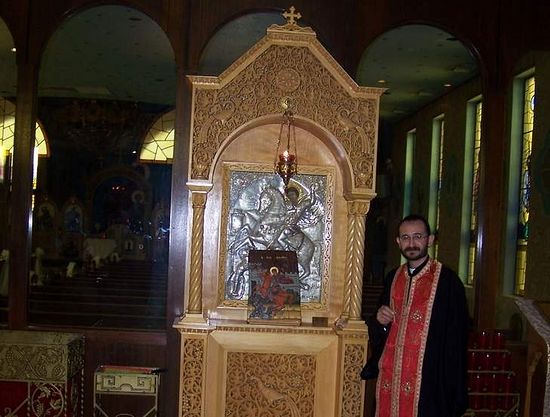
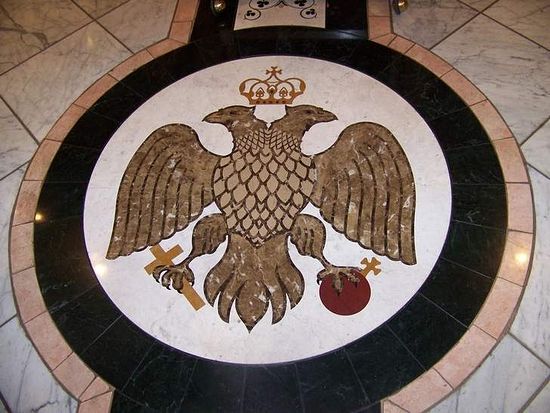
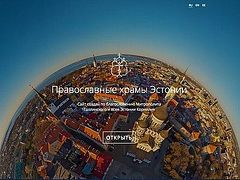
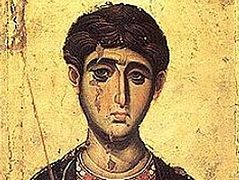
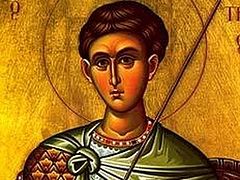
Thank you,
Dana Baser